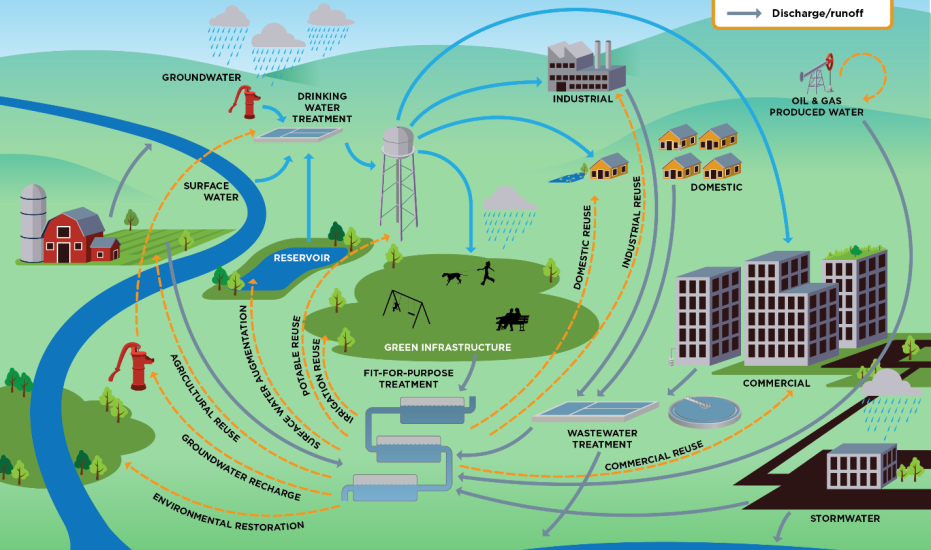- 20 Haziran 2024
- Yayınlayan: SABO
- Kategori: Genel

Water is the lifeblood of our planet, integral to ecosystems, industries, cities, and agriculture. As the global population grows and industrial activities expand, water resources are rapidly depleting and becoming polluted. Water reuse emerges as a critical solution for sustainability and economic resilience.
Water Scarcity Challenges
Factors such as climate change, urbanization, and pollution intensify the pressure on water resources. According to the United Nations, water use has been growing globally at more than twice the rate of population increase in the last century, and many regions face chronic water shortages.
Benefits of Water Reuse
Water reuse, the process of recovering water from various sources for reuse in different applications, alleviates water scarcity and reduces dependence on freshwater sources. It conserves water and significantly reduces the environmental impact of wastewater discharge.
The Role of Ozone in Water Reuse
Powerful Oxidant
Ozone (O3) is a powerful oxidant used effectively for disinfecting and treating water. It decomposes into diatomic oxygen, leaving no harmful residues, making it environmentally benign compared to traditional chemical treatments.
Efficiency and Versatility
Ozone destroys bacteria, viruses, fungi, and contaminants, making wastewater suitable for reuse. Industries like agriculture, manufacturing, pharmaceuticals, and food processing benefit from ozone systems by reducing water intake and minimizing environmental footprints.
Environmental and Financial Benefits of Ozone Water Treatment
Environmental Impact
Utilizing ozone for water treatment converts wastewater into reusable water without toxic byproducts. This reduces pollution and conserves freshwater ecosystems. Ozone’s advanced oxidation processes break down pollutants, ensuring clean reused water.
Cost Savings
Reusing water through ozone treatment can lead to substantial cost savings. Businesses reduce water acquisition costs, lower wastewater disposal fees, and avoid penalties associated with environmental compliance. Sustainable practices also enhance corporate image and market share.
Retrofitting and Operational Simplicity of Ozone Systems
Integration Ease
Ozone technology can be easily retrofitted into existing water treatment infrastructure with minimal disruption. Modern ozone systems are compact, energy-efficient, and easy to maintain.
Operational Efficiency
Ozone systems require less manual intervention due to automated controls that maintain desired ozone levels and monitor performance. This reduces the need for specialized personnel, lowering operational costs and complexity.
Conclusion
As the demand for sustainable water management solutions grows, ozone technology stands out for its efficiency, environmental safety, and adaptability. Businesses across various sectors can leverage ozone-based water reuse systems to comply with environmental regulations and gain a competitive edge. Ozone water treatment systems help meet water needs sustainably and responsibly, ensuring long-term viability and success in a world where water is an increasingly valuable resource.
